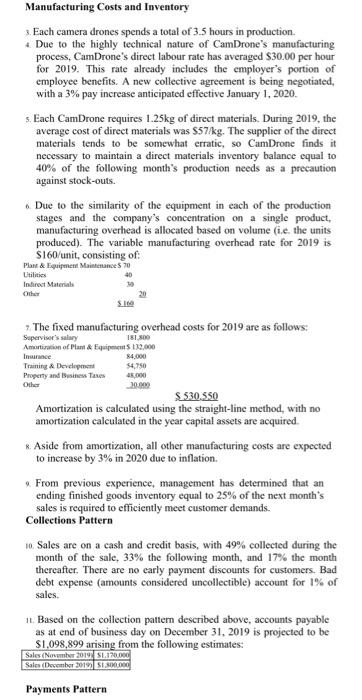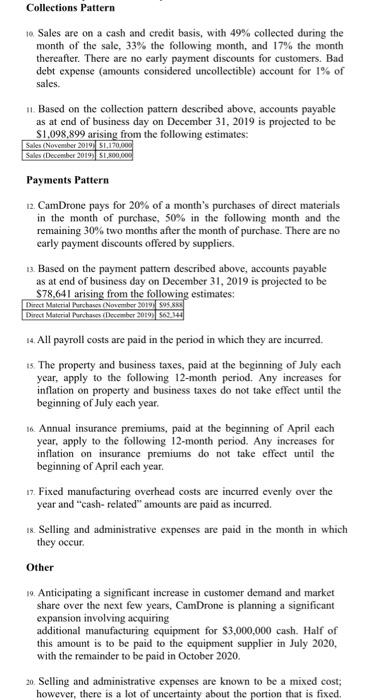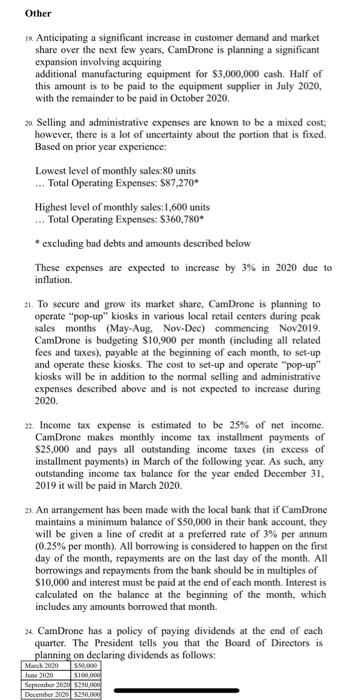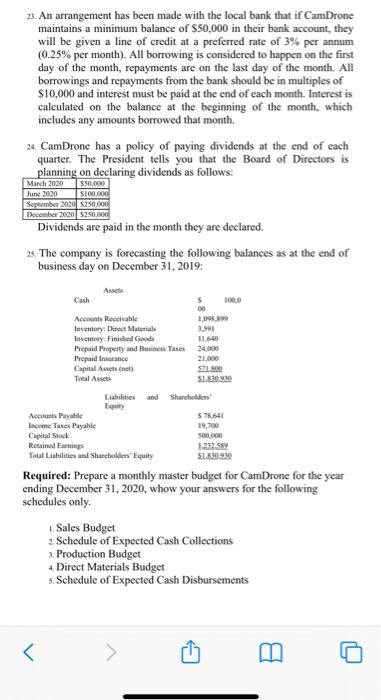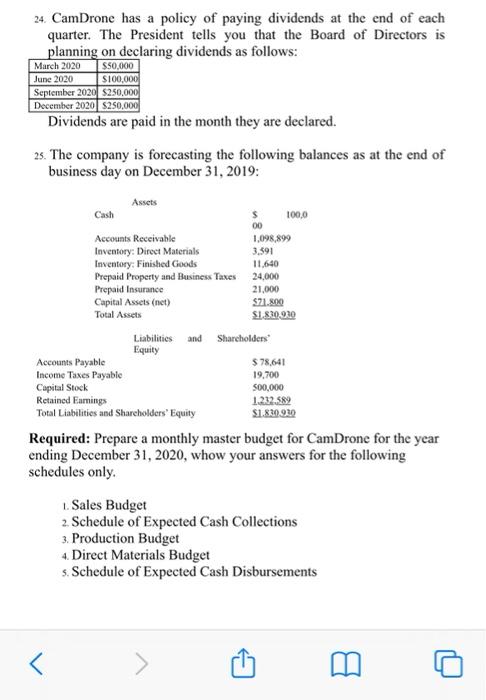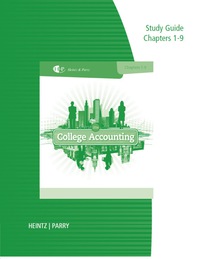plese give a hand eritten answer
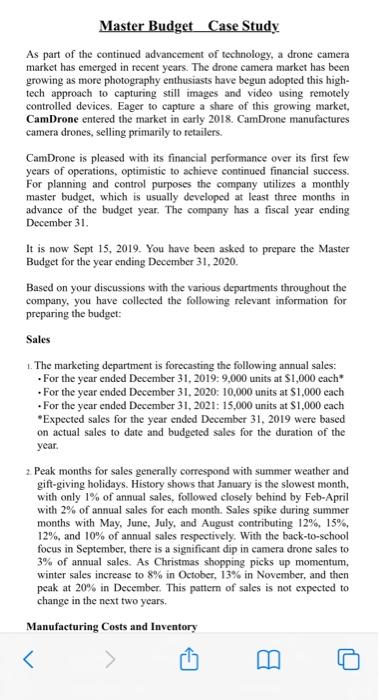
Master Budget Case Study As part of the continued advancement of technology, a drone camera market has emerged in recent years. The drone camera market has been growing as more photography enthusiasts have begun adopted this high- tech approach to capturing still images and video using remotely controlled devices. Eager to capture a share of this growing market, CamDrone entered the market in early 2018. CamDrone manufactures camera drones, selling primarily to retailers. CamDrone is pleased with its financial performance over its first few years of operations, optimistic to achieve continued financial success. For planning and control purposes the company utilizes a monthly master budget, which is usually developed at least three months in advance of the budget year. The company has a fiscal year ending December 31 It is now Sept 15, 2019. You have been asked to prepare the Master Budget for the year ending December 31, 2020. Based on your discussions with the various departments throughout the company, you have collected the following relevant information for preparing the budget: Sales 1. The marketing department is forecasting the following annual sales: . For the year ended December 31, 2019:9,000 units at $1,000 each . For the year ended December 31, 2020: 10,000 units at $1,000 each . For the year ended December 31, 2021: 15,000 units at $1,000 each * Expected sales for the year ended December 31, 2019 were based on actual sales to date and budgeted sales for the duration of the year. 2. Peak months for sales generally correspond with summer weather and gift-giving holidays. History shows that January is the slowest month, with only 1% of annual sales, followed closely behind by Feb-April with 2% of annual sales for each month. Sales spike during summer months with May, June, July, and August contributing 12%, 15%, 12%, and 10% of annual sales respectively. With the back-to-school focus in September, there is a significant dip in camera drone sales to 3% of annual sales. As Christmas shopping picks up momentum, winter sales increase to 8% in October, 13% in November, and then peak at 20% in December. This pattern of sales is not expected to change in the next two years. Manufacturing Costs and Inventory


